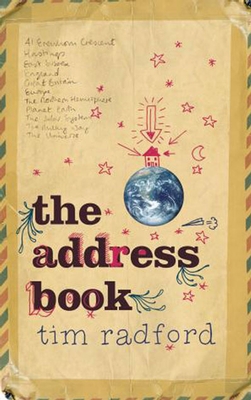 The Address Book by Tim Radford (Fourth Estate)
The Address Book by Tim Radford (Fourth Estate)
I started Tim Radford’s book while sitting in an aeroplane, jetting between Dallas and Los Angeles, around 5,400 miles from my cosy flat in London. As I reached the clouds, with the ground hurtling away beneath me, Radford’s beautiful nostalgia for the places where he has lived reminded me of my own past addresses. And I’ll admit, seasoned traveller though I like to think I am, I felt a little homesick.
The Address Book comprises eleven chapters, each exploring a larger part of an address. It starts with the history of the author’s house in Hastings and ends with a potted portrait of the universe. Radford is a celebrated veteran of British science journalism and I got the sense that this was a book written by a man who has seen it all and done it all, before realising that home is where the heart is.
And perhaps because he has seen it all and done it all, this is an unusual kind of science book. In fact it’s not really a science book at all, but more of a personal and autobiographical essay exploring what it means to be from a certain location. It has the flavour of a Werther’s Original – like a tale told by a kindly grandfather who has a tendency to wander off on interesting tangents and reminisce about his favourite room in an old childhood house.
There is a scholarly mix of history, geography, art and literature. For example, he includes long passages exploring the history of place names and how, in turn, places name us. Hastings, he tells us, is also a common surname, harking back to a time when people were known by the towns and cities they were from: Leonardo da Vinci and Jesus of Nazareth, for example.
While the story can sometimes get lost in the details (the incessant lists were too nerdy, even for me: “A town is a concentration of buildings used for worship, civic and judicial administration, business, trade, entertainment and domicile”), Radford is so skilled at turning a phrase that the book is still a pleasure to read.
He is particularly strong when he gets to the meaty descriptions of Planet Earth and the broader universe. “I am fond of thinking of the origin of life as a murder mystery in reverse,” he writes. “A body came to life in a locked library and released itself, before destroying the key and demolishing the library.” Paragraphs like this prove what a wonderful science writer he is.
But most of all, The Address Book is a gentle reminder that while we humans may be insignificant specks in time and space, our tiny part of the cosmos is as precious to us as the largest stars. I can travel the globe, I realised, but the centre of my universe will always be my little flat in London.

